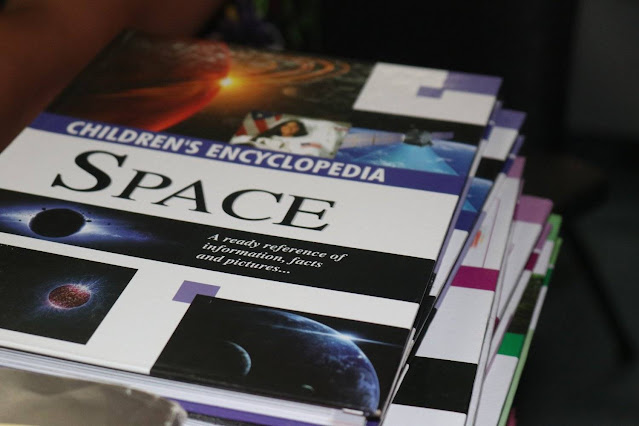Every year in August, Papua New Guinea (PNG) hosts a remarkable educational event known as National Book Week. Since its inception in 1980, this event has been celebrating the profound significance of books and reading as sources of both learning and enjoyment.
Organised by the PNG government through the Office of Libraries and Archives, the National Book Week serves as a platform to encourage people of all ages, especially children and youths, to immerse themselves in the enriching world of literature.
With an array of thought-provoking themes over the years, the PNG National Book Week strives to inspire individuals to read, grow, and create- fostering a culture of literacy and imagination.
Themes of PNG National Book Week
Each year, National Book Week in PNG revolves around a unique theme that encapsulates the core essence of the event. These themes mirror the broader objectives of the country's educational initiatives and the transformative potential of reading.
Here are the themes that have shaped the event in recent years, presented in ascending order:
2017 - Libraries for National-Building:
This theme emphasized the pivotal role of libraries as essential institutions for societal development. It underscored the significance of accessible information in propelling progress within the nation.
2019 - Upgrade Your Knowledge (IQ):
Focusing on enhancing intelligence and knowledge, this theme accentuated the power of books in driving personal growth and intellectual development.
2020 - Creating Greater Access to Information through Libraries:
Aligned with the goal of making information universally accessible, this theme highlighted libraries as gateways to knowledge and empowerment.
2021 - Lockdown, Stay Safe, Read Books:
In response to the global pandemic's challenges, this theme encouraged reading as a source of solace, learning, and personal growth during uncertain times.
2022 - Choose Your Destiny - Read:
Centred around the power of choice, this theme emphasized how reading empowers individuals to shape their own destinies by embracing diverse perspectives.
2023 - Click on a Book, Pick a Book:
Encouraging the integration of the digital age, this year's theme celebrated the timeless joy and inspiration found within both traditional and digital reading experiences.
2024 - Reading Transform Livelihood
The theme centred around reading having the power to change mindsets and empower communities, founded on the principles of enjoying reading.
PNG National Book Week 2025
This year's theme is one that teachers and students are going to anticipate as they prepare for the national book week. It is going to be interesting given the PNG 50th Independence Celebrations!
The theme for 2025 will be announced well in advance to ensure educators and participants have ample time to engage creatively.
Why not make suggestions for the 2025 theme in the comment below!
National Book Week in PNG stands as a beacon of inspiration, inviting people of all ages to embrace the world of literature. By nurturing a passion for reading among children and youths, we lay the foundation for a future of knowledge, creativity, and growth.
Empowering Local Writers and Bloggers: A Call to Action
As National Book Week continues to ignite the passion for reading, it's crucial to further nurture local literary talent.
The PNG government should take a proactive role in supporting and promoting local writers and bloggers.
By providing platforms, funding, and recognition for their works, the nation can cultivate a diverse and vibrant literary landscape that reflects its unique culture and experiences.
Engaging Local Talent with Schools and Teachers
To truly instil a love for reading, writing, and creativity, the collaboration between National Book Week and educational institutions is imperative.
This collaboration could involve hosting writing workshops, author visits, and interactive sessions between local writers and students.
By connecting local talents with schools and teachers, the event can inspire the next generation of readers and writers, fostering a dynamic exchange of ideas and experiences.
PNG Government Improves Library Services
While National Book Week celebrates the magic of reading, it's essential to address the state of libraries in PNG. The government should take on the challenge of enhancing library services across the nation.
This includes modernising library facilities, expanding collections, and providing resources that cater to various age groups and interests.
A robust library network empowers communities, especially in remote areas, by granting access to knowledge, fostering learning, and igniting imagination.
Conclusion - National Book Week in PNG
The event's themes reflect the evolving landscape of education and technology while celebrating the timeless joy of reading. As we move forward into the upcoming years of National Book Week, let's celebrate the transformative power of books and writing, cultivating a culture of lifelong learning and expansion of horizons.
The journey ahead includes empowering local writers, engaging with schools, and challenging the government to uplift library services, paving the way for a more literate and enlightened society in Papua New Guinea.



